“Versailles in the jungle”: sad story of Mobutu and his dream city of Gbadolite
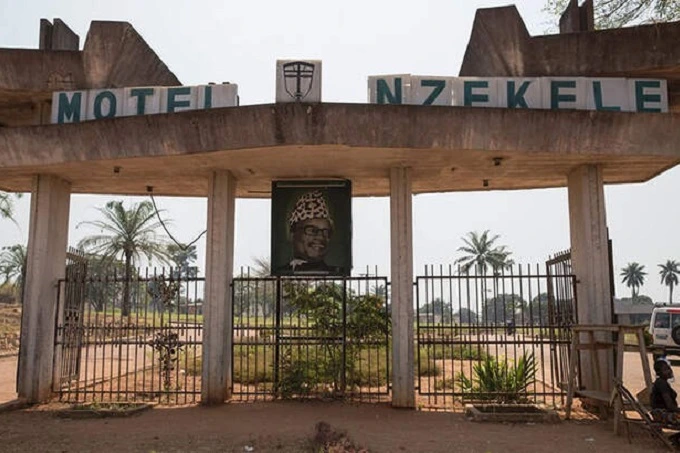
Far and deep in the African tropical forest is a dilapidated city. More than two hundred thousand people live in the city. It wouldn’t be unusual, but half a century ago, it was a pathetic village that wasn’t even on the map. Then a big city grew up here, a dream city, a fairy tale city, a real “Versailles” – Gbadolite, which was visited by the first persons of the world’s most influential states with official visits.
Now, these are ruins reclaimed by the jungle, and only pathetic muffled echoes of its former beauty and grandeur remain from it. What happened to the prosperous city and those who built it?
Gbadolite is located a thousand kilometers from the capital of the Democratic Republic of the Congo, Kinshasa. Fifty-one years ago, there was a village with a population of about one and a half thousand people. This settlement was not even on the maps. Everything changed when the dictator Mobutu Sese Seko came to power.
In just ten years, the newly minted president turned the abandoned village where he was born into a sprawling, prosperous city. There was an airport, luxurious five-star hotels, supermarkets, schools, and hospitals, equipped with cutting-edge high-tech equipment. Gbadolite had a three thousand two hundred meter runway built for the supersonic Concorde. All this today lies in ruins. The jungle is gradually reclaiming its territory from people.
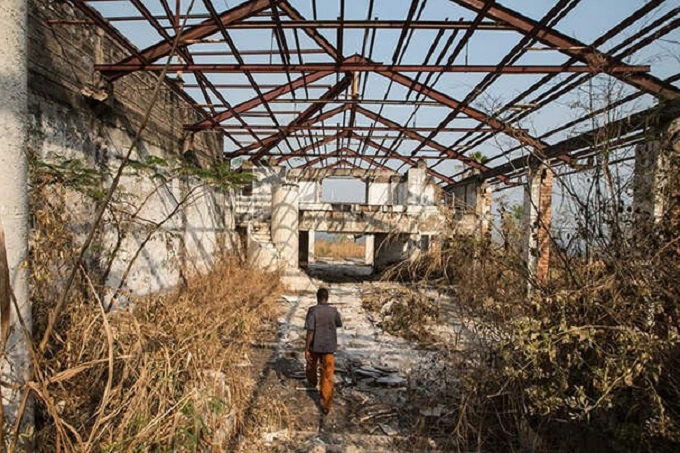
Mobutu seized power in 1965 in a military coup. The military dictatorship of the totalitarian regime of President Mobutu Sese Seko lasted three decades. The dictator was born in the jungles of the Congo, the largest country in Africa and the poorest and long-suffering of them all. Perhaps the implementation of such an arrogant and monumental project compensated for some childhood mental trauma Mobutu…
History has known a lot of dictators, and they all showed similar examples of narcissism, embodying the wildest fantasies. It is not enough to build yourself a luxurious palace. You need to put on the map a new city built according to your own project. Mobutu has no monuments in the Congo in the truest sense of the word. But it is enough to look around, being in Gbadolite – this is all his monument.
After the pyramids, this city is the most valuable monument that man has built for himself. A former journalist-turned-billionaire who adored art so passionately. And even though there will be no celebration of the anniversary of the ascent of Mobutu this year, his name is inscribed in history.
It all started a very long time ago. The Congo has just emerged from the catastrophe of Belgian rule. King Leopold II, perhaps the most egregious of all the colonialists, turned the country into his fiefdom, killing and enslaving the population in order to enrich himself on ivory and rubber. The Congo had a chance at independence with Prime Minister Patrice Lumumba. The CIA helped Belgium destroy it. Joseph Desiree Mobutu, who was a reporter and editor at the time, saw this as his chance for a better life.
In 1963, Mobutu was invited by President John F. Kennedy to the White House and recruited to the side of the capitalists on an African Cold War battlefield. Two years later, he declared himself head of state, renamed his country Zaire, and renamed himself Mobutu Sese Seko Nkuku Ngbendu Wa Za Banga (which means “almighty warrior who, thanks to endurance and unwavering will to victory, will move from conquest to conquest, leaving behind fire”)and adopted his infamous leopard-skin hat.
Mobutu amassed enormous personal wealth through the exploitation of his country’s population and corruption. He consolidated his power in Zaire with a system of economic and political patronage that made him the darling of the United States. Skillfully exploiting Cold War tensions, Mobutu received significant support from the West and its international institutions, such as the International Monetary Fund. They were ready to endlessly finance his whims, despite the widespread violations of human rights and the uncontrolled inflation into which the country was rapidly sliding.
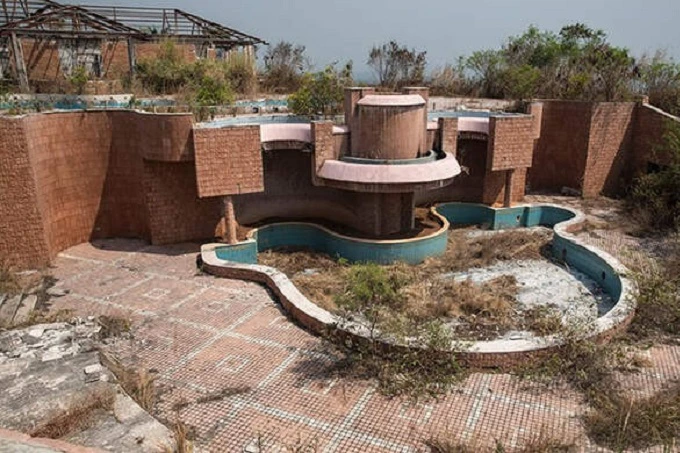
The level of corruption was simply staggering. According to conservative estimates, the dictator stole $5 billion from his country’s treasury, but some sources put the figure up to $15 billion. Mobutu owned luxurious mansions around the world, he loved to travel the world. He went shopping with a huge number of his relatives and luxurious pomp on specially chartered Boeing 747 and Concorde aircraft.
Mobutu’s possessions included a 16th-century castle in Spain, a 32-room palace in Switzerland, and numerous residences in Paris, the French Riviera, Belgium, Italy, Ivory Coast, and Portugal. However, the most striking example of his eccentric quirks was closer to home, in Gbadolite.
This remote village on the border with the Central African Republic became, at the request of Mobutu, a luxurious city, often called the “Versailles of the jungle.” Here the dictator erected three large marble palaces, a 100-room motel run by the Mobutu family, and an airport with an extensive runway long enough to accommodate a Concorde. Also, a nuclear bunker was built here, accommodating more than 500 people. The satellite communications station provided color television and telephone communications. There were modern schools, excellent hospitals, and even a Coca-Cola bottling plant.
The dictator’s palace had many sumptuous works of art. There were many paintings, sculptures, and furniture in the style of Louis XIV. Everything was faced with marble from Carrara in Italy. The residence had two huge swimming pools, surrounded by loudspeakers, from which his favorite Gregorian chants and classical music poured. The palace hosted large-scale receptions and countless flamboyant evenings with Taittinger champagne, salmon, and other gourmet dishes served by Congolese and European chefs on moving conveyor belts.
Mobutu hosted many international dignitaries at his private residence, including Pope John Paul II, King of Belgium, President of France Valéry Giscard d’Estaing, UN Secretary-General Boutros Boutros Ghali, self-proclaimed Emperor of the Central African Republic Jean-Bedel Bokassa. His guests at various times included American televangelist Pat Robertson, oil baron David Rockefeller, businessman Maurice Tempelsman, and even CIA director William Casey.
Mobutu helped the Soviet Union stay away from Africa’s fabulous natural wealth throughout the Cold War. But after the end of the Cold War, the US and Western powers were no longer willing to fund Mobutu. Instead, they began to put pressure on Mobutu to democratize the regime. The Bush administration even denied him a visa when he tried to visit Washington. The dictator then lamented: “I am the last victim of the Cold War, which the United States no longer needs. The lesson is that my support for American policy means nothing.”
In 1996, suffering from cancer, Mobutu went to Switzerland for treatment. When he returned home, the rebels took up arms and overthrew Mobutu with the help of an alliance with neighboring states. His army offered almost no resistance. Mobutu fled his country to Togo and then to Morocco, where he died at the age of 66.
Mobutu’s palaces in Gbadolite were destroyed and looted by the rebels. They smashed luxurious furniture, tore off beautiful silk curtains, and stole everything of value. Many buildings now do not even have a roof. The Coca-Cola bottling plant, which once employed 7,000 people, has shut down and has been turned into a UN logistics base. The unfinished building of the Ministry of Water Resources has been turned into a makeshift school. Gbadolite became a shadow of himself. The jungle has taken over the land.
The magnificent five-star Nzekele Motel is now abandoned and rundown but still open for business. The empty theater has torn seats and holes where the projector should have been. The airport is practically non-functional. Only two or three tiny planes a week come from the UN.
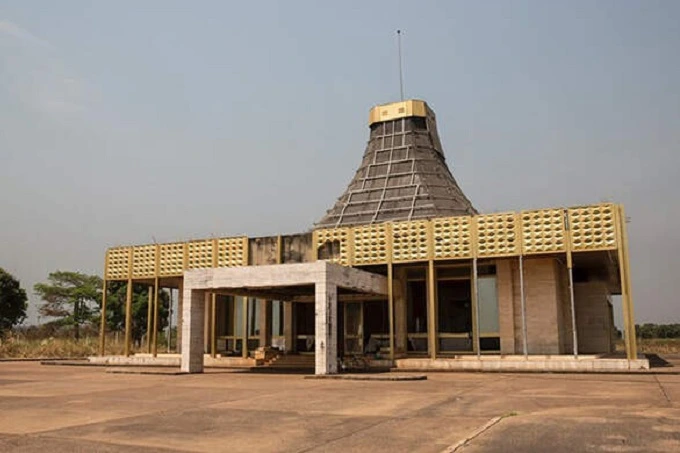
The “brutal” dictator Mobutu still has supporters. His ruined home is taken care of by a handful of loyalists who willingly give visitors a guided tour for the money. “I care about this place because it belongs to us. Although Mobutu died, he left them to us,” said one of the self-appointed caretakers.
François Kosia Ngama, whose grandmother taught Mobutu’s mother, recalls the glorious days of Gbadolite’s past, when 700 to 800 chauffeurs, cooks, and other attendants, as well as more than 300 soldiers, worked in the palace. “When I came here, I felt like I was in paradise. It was wonderful. Everyone ate as much as they wanted,” Ngama recalls dreamily.
“People were poor, but we didn’t notice it at the time,” he continues. “We thought everything was fine. The army was organized and well paid. There were clothes from the Netherlands, and the women had money to buy them. In the field of education, teachers received good salaries and did not complain. Some needed big bags to carry all the money every time they got paid. Most teachers had their own transport. Now it’s not like that.”
Elias Mulungula, a former minister who remained loyal to Mobutu, said: “President Mobutu was a positive dictator, not a negative one. He knew what methods to use to maintain unity, security, and peace for his people. You could feel at home anywhere in the Congo under the Mobutu regime. There is no freedom without security. He understood what people needed.”
Even Mobutu’s opponents agree that Mobutu was more useful than some of his successors. And certainly preferable to the former president, Kabila’s son Joseph, who is accused of corruption, human rights violations, and attempts to stay in power beyond his term. “Mobutu was a dictator, but with him, we had a state. Today we don’t have a state – it’s a jungle. Kabila kills more than Mobutu. Kabila is three times richer than Mobutu. Mobutu was respected in the international community. Kabila is behaving wildly and cruelly,” said Joseph Olengankoy, who was arrested 45 times by the Mobutu regime.
Many also lament the senseless destruction of Gbadolite. Mobutu was not just a dictator, he was a great builder. His house was furnished by local artists. He was generous and allowed them to become famous throughout the world. “But after his death, people destroy, not preserve. Today, the city is just a shadow, and nature has regained its right. If I went back there today, I would feel despair,” says Olengankoy.
Now it is impossible to look at the city without tears. Elias Mulungula, who was Mobutu’s interpreter for four years, shares this sentiment: “If I go to Gbadolite today, I can’t help but cry as Jesus wept when looking at Jerusalem.” Mulungula, 52, was a minister in Mobutu’s government but admitted: “I’m always more proud when people greet me as ‘Mr. Translator’ than when they say ‘former minister.’ Working as a translator for Mobutu was a privilege. He was a very kind leader, and gentleman. He couldn’t eat without making sure other people had already eaten. He was open and liked to joke.”
Only many years have passed, and Gbadolite has become a miserable likeness, a mockery of the insane wealth of Mobutu. The dilapidated brown-and-gold gate still stands at the edge of a large estate opposite a group of small houses built of mud, wood, and dried grass. Mami Yenou, 26, who lives there, says: “We were unhappy with how much Mobutu was spending when the locals were suffering, even though he gave us gifts, clothes, and money.”
Children lift rusty pieces of scrap metal to let cars through, past vegetation, anthills, and a control room where security officers once screened visitors. On a winding road with a length of almost three kilometers – now empty. A tiered Versailles-style fountain can be seen in the distance, which used to play instrumental music. Now there is a dry pool, the lining is cracked, and weeds are growing there.

Mobutu can be treated differently. But this is all history. The dictator is no longer alive. All this splendor should remain state property. The mistake of this country is that they destroyed and plundered everything. They did this to erase Mobutu’s memory, but history must be preserved. History may be positive or negative, but it remains our history, and we must pass it on from one generation to the next. The palace at Gbadolite is evidence of the death of memory. It is sad when this happens in a modern, seemingly civilized world. But, unfortunately, it happens.

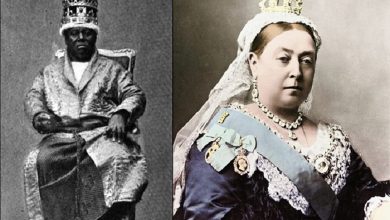

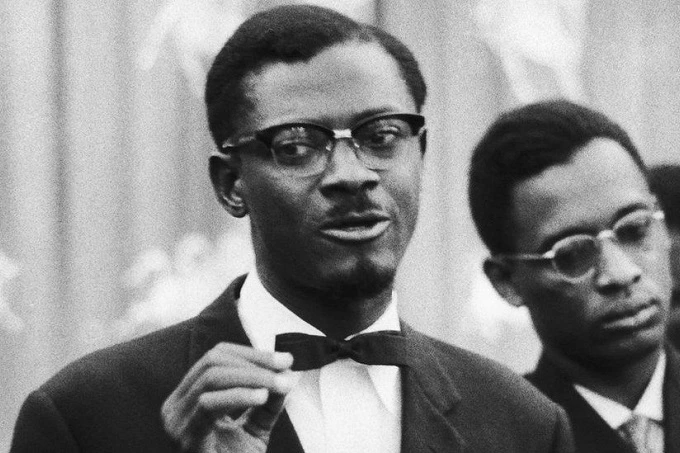
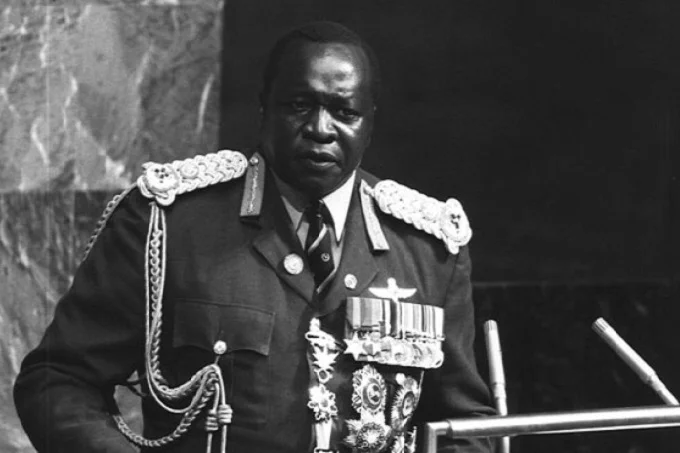
The phrase KUKU NGBENDU WA ZABANGA in the local Ngbandi tribe dialect means :
“Red Pepper, even if unrpe, still stings.”